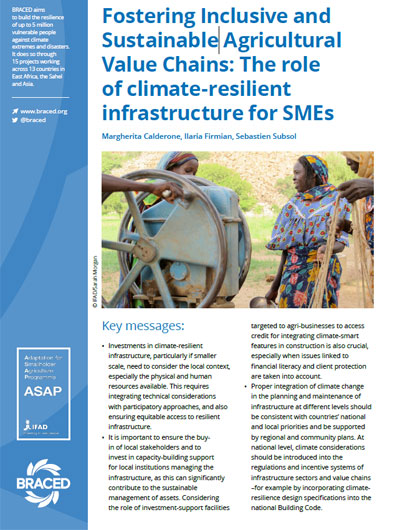Fostering Inclusive and Sustainable Agricultural Value Chains: The role of climate-resilient infrastructures for SMEs
Fostering Inclusive and Sustainable Agricultural Value Chains: The role of climate-resilient infrastructures for SMEs
This study reviews evidence on initiatives that invest in climate-resilient infrastructure to support smallholder farmer organizations and agribusinesses in the micro, small and medium-sized enterprises (MSME) category and, ultimately, to foster inclusive and sustainable agricultural value chains. Case studies from the BRACED and ASAP programmes across sub-Saharan Africa are presented.
The report provides an overview of the literature to examine whether initiatives aimed at supporting resilient infrastructure, particularly small-scale infrastructure, have the potential to favour an increase in smallholder participation in value chains.
To inform operational practices and institutional policies, the study also presents a series of short case studies of examples from the BRACED and ASAP programmes, based on comprehensive reviews of programme-related documents and relevant background reports.
About BRACED:
BRACED aims to build the resilience of up to 5 million vulnerable people against climate extremes and disasters. It does so through 15 projects working across 13 countries in East Africa, the Sahel and Asia.

Temas
Clima y medio ambiente